According to polls from varied sources, the view of the United States economy rarely rated higher than now. Only during the booming tech stock period from 1998 to the beginning of 2001 have polls shown higher numbers regarding the economy.
But another approval number continues to fall pointing to an unusual disconnect.
While people see the economy as strong, the job approval rating for President Donald Trump continues to stay below 50 percent and even dips below 40 percent. A look at poll numbers since 1985 shows a trend of strong economies yielding strong job approval for the President in office.
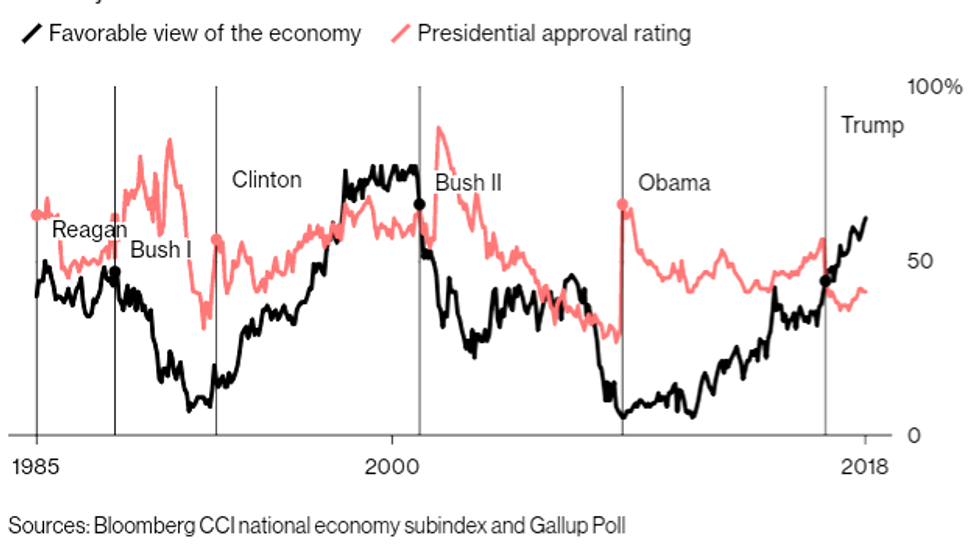
At the end of August, 2018, favorable views of the economy sat at 62.4 percent. A September 10, 2018 Quinnipiac poll put the number even higher at 70 percent.
But at the end of August, Trump polled an average of only 41 percent for his job approval rating. The same Quinnipiac poll that showed 70 percent approval for the economy only garnered a 38 percent approval rating for the President.
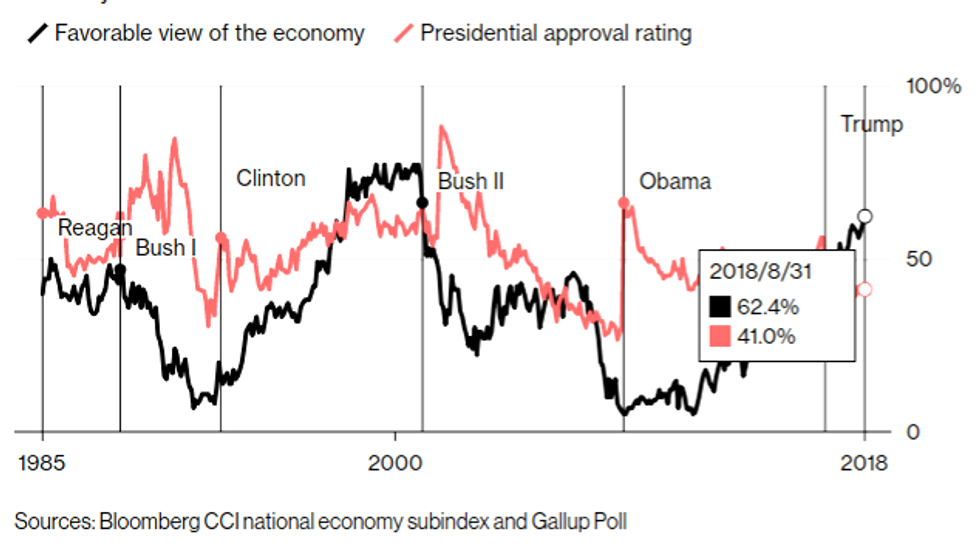
Trump frequently points to the economy as a measure of his success.
While he inherited a recovering economy from President Barack Obama—coming up in both economic indicators and favorable poll numbers from the depths it had dropped to under President George W. Bush—other Presidents maintained a high favorability rating based on an inherited economy as the graph shows.
Bush inherited a strong economy from President Bill Clinton and despite the controversy of his win in the 2000 election—losing the popular vote but winning the electoral vote—his job approval rating only fell slightly.
Obama inherited one of the poorest rated economies since Clinton took over from President George H. W. Bush. But his falling approval numbers recovered as he turned the economy around.
Trump's disconnect is not completely without precedent however. The scandals that plagued the end of the Clinton administration put the President's job approval below the view of the economy. Clinton left office with a job approval at 63 percent, but 77 percent of voters viewed the economy favorably.
That disconnect contributed to Vice President Al Gore's defeat in the electoral vote against Bush. And that precedent should concern Republicans.
Heading into the midterm elections in November, the head of their party sits not at 63 percent with a 77 percent favored economy—a 14 percentage point discrepancy. Trump sits at 38 percent job approval with a 70 percent approval of the economy—a 32 percentage point discrepancy.
Republican candidates need to decide whether to embrace Trump or distance themselves. But if they distance themselves from the man, how do they embrace the economy?
Karlyn Bowman, a polling expert at Washington's conservative American Enterprise Institute, stated:
"There’s a huge disconnect. The economy doesn’t seem to be dominating in a way that it often does in elections."
Trump's appointed Director of the Office of Management and Budget, Mick Mulvaney, advised focusing on the economy and not on Trump in a meeting with Republican backers.
But why the big disconnect? What is different this time?
President Trump tends toward polarization. His speech patterns also deals in absolutes. Superlatives like "best" and "biggest" dominate his tweets and rallies.
Perhaps more than prior Presidents, Trump falls into a definite love him or hate him relationship with voters. When asked if they strongly or somewhat approve or strongly or somewhat disapprove of Trump, poll respondents more often choose strongly over somewhat.
The President's strong supporters believe he can do no wrong regardless of scandals or allegations of impropriety and ongoing investigations. But his detractors are equally unlikely to view anything Trump does as right.
So when Trump tweets about the economy, those who fall on the job disapproval side remain unswayed. The President's Twitter posts about his great economic numbers get met with one name over and over: Obama.
And the detractors come with economic figures and statistics to back their view as well as point out areas of the economy where things continue to falter, like individual wages. Trump's tweets fail to sway voters and may actually hurt more than help.
Midterm elections are set for Tuesday, November 6, 2018. Time for Republicans to turn opinion of the President around dwindles daily.







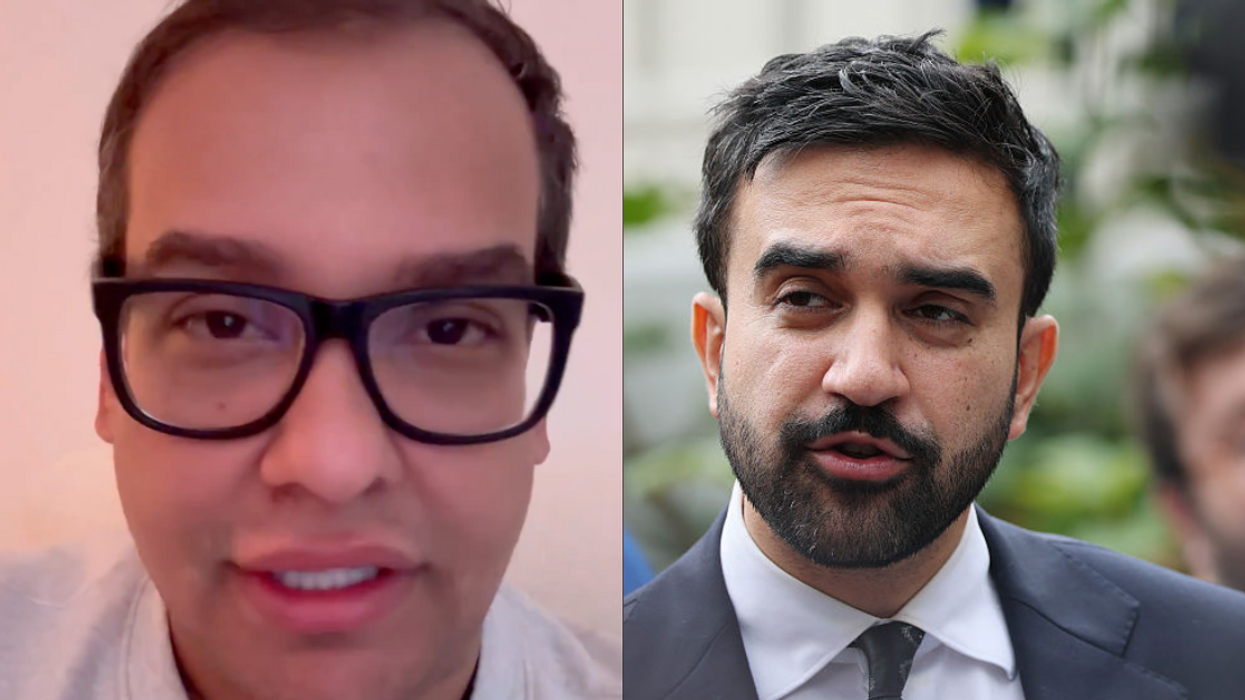



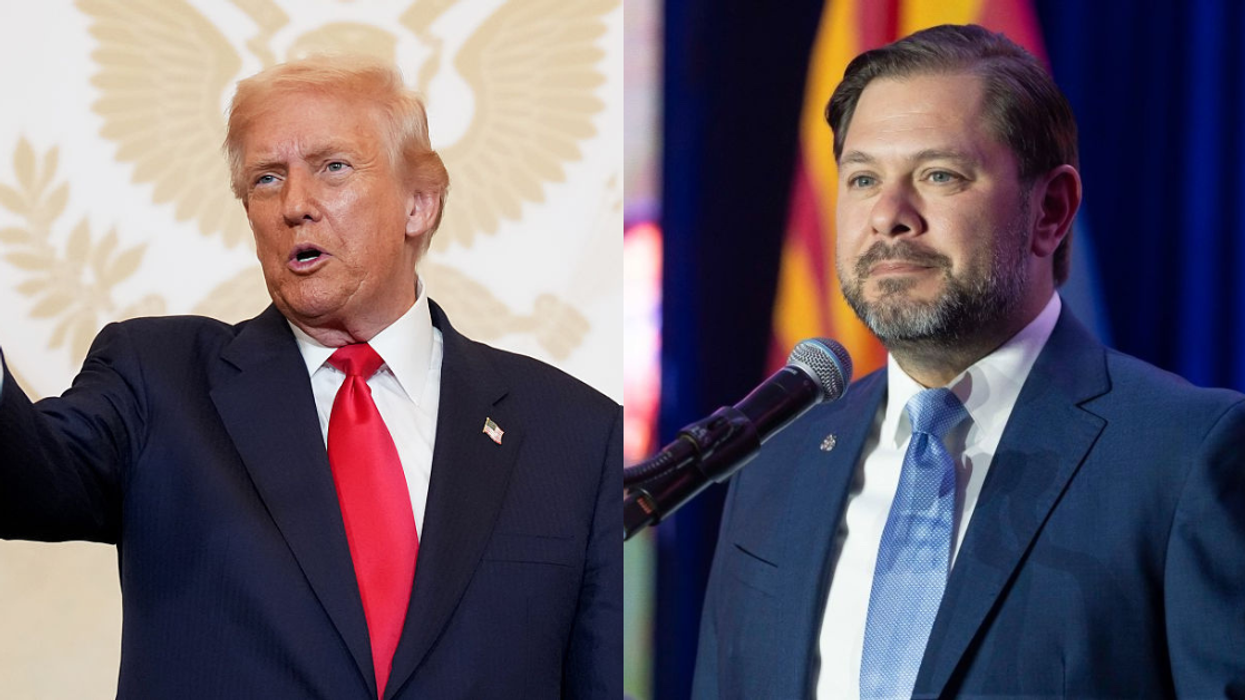
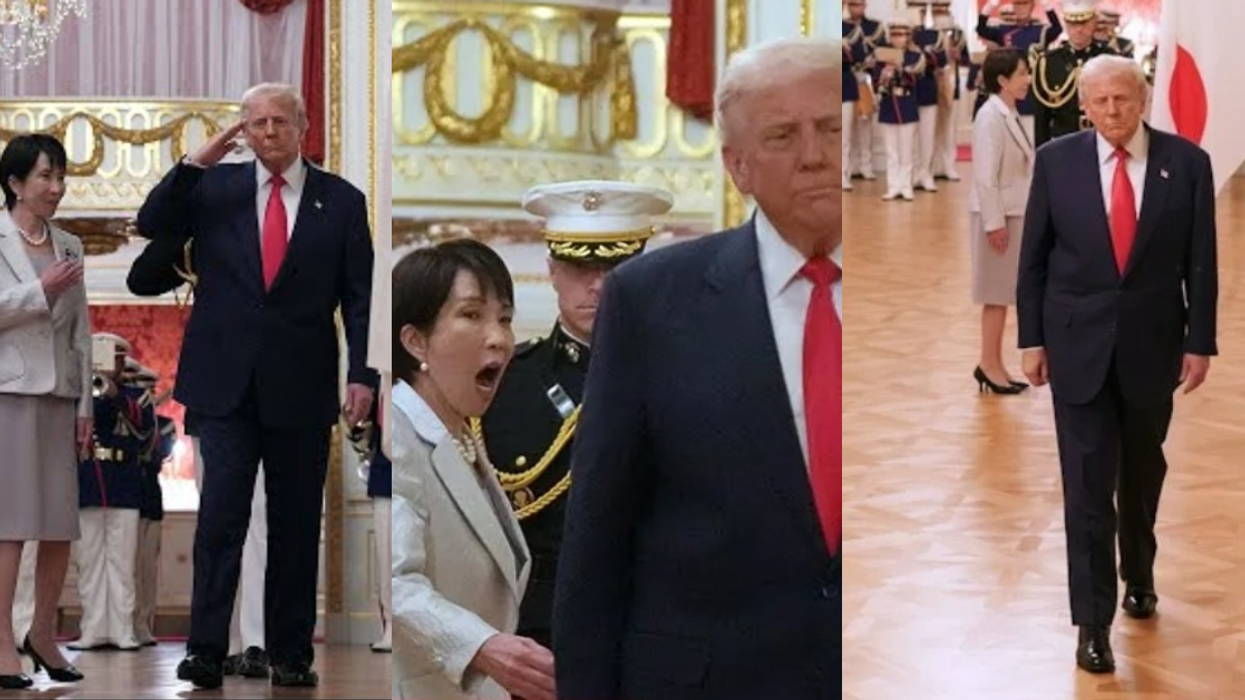
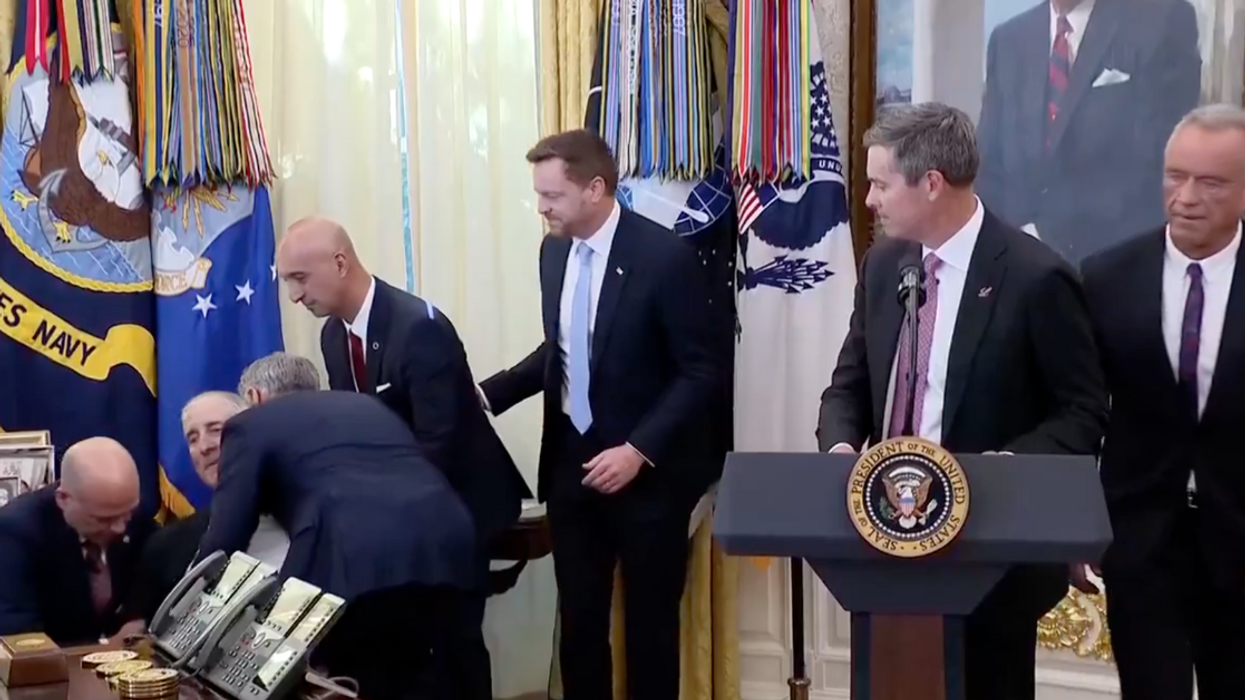


 breast cancer GIF by Baptist Health South Florida
breast cancer GIF by Baptist Health South Florida  Teddy Bear Doctor GIF
Teddy Bear Doctor GIF 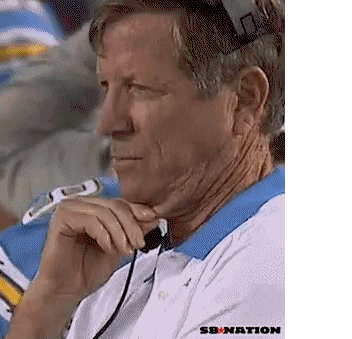 feeling neck skin GIF
feeling neck skin GIF  praying GIF
praying GIF 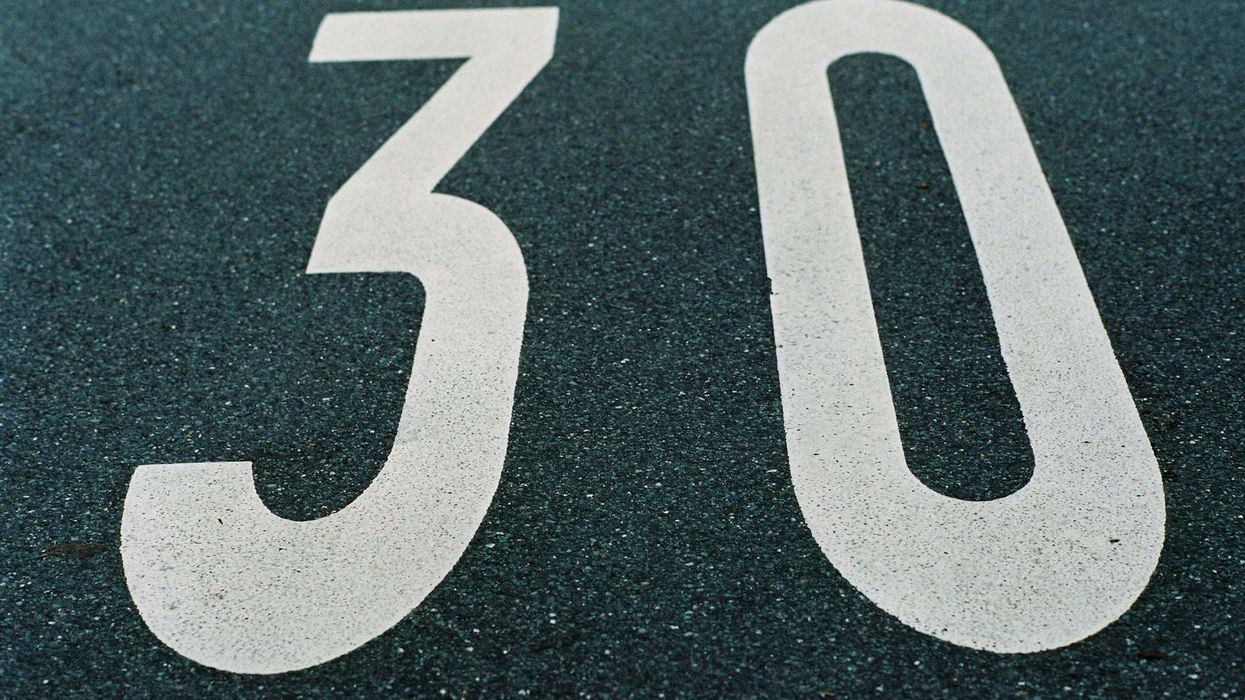
 Snail Ugh GIF by Sticker Book iOS GIFs
Snail Ugh GIF by Sticker Book iOS GIFs  Serious
Serious  Home Alone Reaction GIF by 20th Century Fox Home Entertainment
Home Alone Reaction GIF by 20th Century Fox Home Entertainment  Cat Working GIF
Cat Working GIF